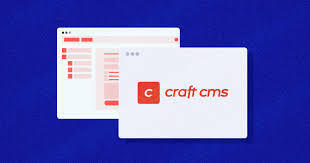When building a modern website or e-commerce platform, Craft offers a suite of tools that cater to different needs. However, many developers and business owners often wonder about the difference between Craft CMS, Craft Commerce, and Craft Cloud. While all three products are developed by Pixel & Tonic, each serves a unique purpose in the content and commerce ecosystem.
In this post, we’ll break down the key differences between these platforms to help you choose the right combination for your next project.
1. What is Craft CMS?
Craft CMS is a flexible and developer-friendly content management system (CMS) designed for building custom websites. Unlike traditional CMS platforms like WordPress, Craft CMS provides a blank canvas for developers to create completely tailored experiences.
Key Features:
- Matrix blocks for flexible content modeling
- Headless API capabilities (GraphQL & REST)
- Multi-site and localization support
- Fine-grained user permissions
- Custom fields and content structures
Craft CMS is best suited for websites that require custom workflows, editorial flexibility, and pixel-perfect frontend control.
Learn more:
Craft CMS Official Site
2. What is Craft Commerce?
Craft Commerce is an e-commerce plugin built specifically for Craft CMS. It transforms a standard Craft site into a powerful and customizable online store.
Key Features:
Product and variant management
Customizable checkout flows
Flexible tax and shipping rules
Subscriptions and digital products
Integration-ready via APIs and plugins
Unlike off-the-shelf eCommerce platforms, Craft Commerce allows you to build completely tailored shopping experiences without being restricted by rigid templates or workflows.
Use Case:
If you already have a Craft CMS-powered website and need to add a shop or e-commerce functionality, Craft Commerce is your go-to solution.
Explore more:
Craft Commerce Details
3. What is Craft Cloud?
Craft Cloud is a fully managed hosting platform designed for Craft CMS and Craft Commerce. It removes the hassle of setting up servers and managing deployment pipelines, allowing you to focus on building and scaling your site.
Key Features:
- Fully managed hosting environment
- Automatic updates and backups
- Integrated development tools
- High performance and uptime
- Secure infrastructure powered by AWS
With Craft Cloud, you don’t need a separate DevOps team to manage hosting or deployments. It’s built to work seamlessly with Craft CMS and Commerce and includes robust staging and deployment tools.
Try Craft Cloud:
Craft Cloud Hosting
Craft CMS vs Craft Commerce vs Craft Cloud: A Summary
| Feature | Craft CMS | Craft Commerce | Craft Cloud |
|---|---|---|---|
| Purpose | Content management | E-commerce functionality | Hosting and deployment |
| Integration | Base platform | Plugin for Craft CMS | Platform for both CMS/Commerce |
| Pricing | Free (Pro available) | Paid license required | Subscription-based hosting |
| Ideal for | Custom websites | Online stores | Developers wanting managed hosting |
| Hosting Included | No | No | Yes |
Which One Do You Need?
Use Craft CMS if you want a modern, flexible CMS to build your website.
Add Craft Commerce if you're planning to sell products or services online.
Choose Craft Cloud if you want a reliable, scalable hosting solution for your Craft-based project without managing your own infrastructure.
Each tool complements the others. You can use Craft CMS alone, pair it with Craft Commerce for e-commerce, and host everything on Craft Cloud for a seamless end-to-end solution.
Conclusion
Craft's ecosystem provides a modern, modular approach to web development. Whether you need a robust content management system, a customizable e-commerce solution, or a managed hosting environment, Craft has a tailored product to suit your needs.
By understanding the differences between Craft CMS, Craft Commerce, and Craft Cloud, you can make informed decisions that align with your project goals and technical requirements.
For more help or information, feel free to visit:
👉 Craft CMS Developer
